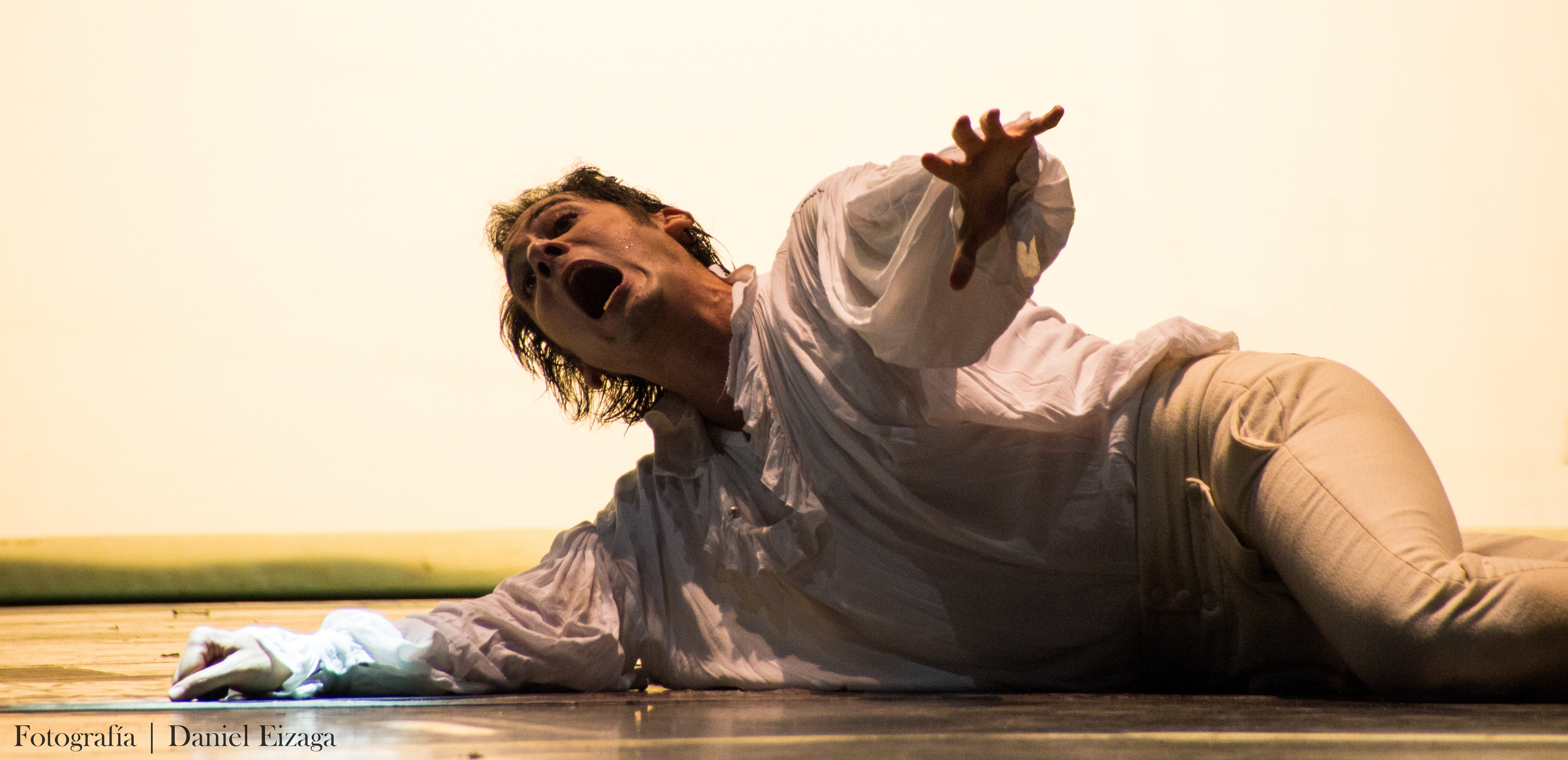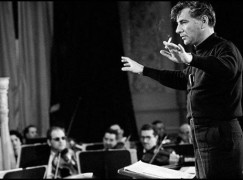Six men have come forward with claims of sexual misconduct against the former long-serving executive director of the Utah Valley Youth Symphony.
Detailed report here.

Six men have come forward with claims of sexual misconduct against the former long-serving executive director of the Utah Valley Youth Symphony.
Detailed report here.

We hear Toronto is about to announce its next CEO.
It’s Matthew Loden, the man who has been interim chief of the Philadelphia Orchestra for the past four months.
Loden will start work in July.
The question that springs to mind is: was Loden put in the frame by Yannick Nézet-Séguin, his Philly Canadian ally?
Loden will succeed the retiring Gary Hanson, who took the job in September 2016 after the collapse of previous stout parties.
Expect a press release later today.

Unusual happenings at the recent Don Giovanni in Santiago, Chile.
A few minutes into the last performance of a boisterous production, the baritone Levent Bakirci suffered a painful injury when Donna Anna fell onto his left hand, fracturing a finger.

Levent, good trouper that he is carried on singing.
Other members of the cast, unaware of his pain, kept raining blows onto his left hand. Donna Elvira, we hear, was particularly harsh.
‘At the end,’ says Levent, ‘the women got their revenge and Don Giovanni was really punished.’

The Metropolitan Opera National Council Auditions last night picked out five of the nine contenders for the main awards. They are:
Jessica Faselt, 25, soprano (Iowa City);

Madison Leonard, 26, soprano (Coeur d’Alene, Idaho);
Ashley Dixon, 26, mezzo-soprano (Peachtree, Georgia);
Hongni Wu, 23, mezzo-soprano (Jingdezhen, China);
and Carlos Enrique Santelli, 26, tenor (Orlando, Florida).
Each receives $15,000 and a career boost.
The other four go home with a $5k consolation check.
More than 7,000 people had been killed in Moslem-Buddhist fighting in southern Thailand when a regional administrator came up with the idea of inviting young people on both sides to form an orchestra.

What happened next?
Read (and watch) the BBC Thai report.

Photographs by Panumas Sanguanwong of BBC Thai
The Orchestre de Paris, independent since its foundation in 1967, has been made a department of the Philharmonie de Paris at the stroke of a minister’s pen.
The orchestra loses its independence immediately.
One ambitious bureaucrat will benefit, the music will lose out.
Laurent Bayle, president of the Philharmonie and now overall master of the orchestra said the move will give the orchestra ‘a stringer resonance at international level.’
He does not mention that Berlin, London, New York and other cities have all considered integrating their best orchestra with the arts centre and all rejected it for the same reason – it damages the orchestra.
The impending merger may have been a factor in Daniel Harding’s resignation earlier this year.

The Teatro Regio audience is unhappy with the political dismantling of a decade’s success.
More here.

Sir Simon Rattle has been an advocate of the Deryck Cooke performing version of Mahler’s Tenth since he was in his 20s and has probably conducted it more than any other maestro.
In his most recent performance with the London Symphony Orchestra – a stunner – he conducted the huge symphony from memory.
Watch here:
The symphony begins at 1:37:05.
Earlier, at 1:11:00, Rattle argues authoritatively that Mahler’s 10th ‘was written from beginning to end by Mahler: we have every single bar.’ It contains, says Rattle, ‘his profoundest and most moving finale.’
He ads: ‘I get angry when people say he didn’t complete it.’
Essential viewing.
The slightly irritating backstage presenter keeps using the word ‘controversial’ for anything she cannot understand.
Read Fiona Maddocks’ review here.
See more comment here.

From Joseph Horowitz’s centennial essay on a failed messiah:
Bernstein’s disappointment upon leaving the Philharmonic was undisguised. He knew that he had failed to transform the orchestra into something dynamically American. He had endured steady complaints—basically valid—that it lacked the gold-standard polish of the orchestras in Boston, Philadelphia, Chicago, and Cleveland. But if his were not the accomplishments he had once envisioned, they were formidable and distinctive. He had not remotely succeeded in canonizing an American repertoire. But, starting from scratch, he had established the iconic importance of Charles Ives. He had singlehandedly canonized Nielsen and helped to restore Sibelius’s luster. And he had left a central legacy honoring a composer and Philharmonic music director far bigger than himself: Gustav Mahler….
Read on here.

From Joseph Horowitz’s centennial essay on a failed messiah:
Bernstein’s disappointment upon leaving the Philharmonic was undisguised. He knew that he had failed to transform the orchestra into something dynamically American. He had endured steady complaints—basically valid—that it lacked the gold-standard polish of the orchestras in Boston, Philadelphia, Chicago, and Cleveland. But if his were not the accomplishments he had once envisioned, they were formidable and distinctive. He had not remotely succeeded in canonizing an American repertoire. But, starting from scratch, he had established the iconic importance of Charles Ives. He had singlehandedly canonized Nielsen and helped to restore Sibelius’s luster. And he had left a central legacy honoring a composer and Philharmonic music director far bigger than himself: Gustav Mahler….
Read on here.

And more:
During the Dark Ages of the New York Philharmonic—the music directorship of Zubin Mehta (1978-91)—I would sometimes find myself in the orchestra’s offices. I dreaded seeing the photograph of Leonard Bernstein hanging over an elevator. It was an image whose ebullience provoked a piercing sadness and incredulity. Evidently, Bernstein no longer wanted to take charge of his leaderless orchestra. And the orchestra didn’t want him. In 1984, Bernstein materialized to conduct part of a program celebrating the 60th anniversary of the Young People’s Concerts. Though a film clip of his “Who Was Gustav Mahler?” was shown, Bernstein did not speak. A member of the Philharmonic staff confided to me the reason: Bernstein was “crazy.” He could not be “controlled.”…
by Joel Cohen of the Boston Camerata, special to Slipped Disc

The main thing to know about Jean-Claude Malgoire (who died this month) was that he was a vivacious, imaginative, and intensely musical human being. The rest, as the saying goes, is commentary.
I remember Jean-Claude, short, bearded, and stocky, a demonstrative Mediterranean born and bred, serving his own, homemade, bean-and- basil soupe au pistou to a small gathering of guests he had invited to his table in the little village house he had purchased a few kilometers north of Aix-en-Provence. “What’s the matter with all of you?” he chided us in his Provençal brogue, as he piled on second and third helpings of his thick, delicious concoction. “Vous n’êtes pas de vrais mangeurs!”
Jean-Claude invariably approached any of his activities – eating, directing an ensemble, riding his motorcycle, charming the ladies (he was good at this, despite his less-than- Grecian physique) with inimitable verve and imagination. He was not cautious and reserved; he was not buttoned-down. The energy and zest poured out of him.
There was nothing methodical or plodding about his approach to music. His manner was spontaneous, quasi-improvisational, and that in-the- moment approach, one of his most appealing traits, also got him into trouble at times. “I hate to rehearse,” he confided in me once. “What I enjoy is performing.” Sometimes the loose ends would show during concerts. But at its best, the Malgoire manner could produce thrilling moments, as when he decided, almost last-minute, to incorporate several wind machines during the mid-1970s commercial recording of a tempest scene in a Lully opera. I was told to leave off my continuo playing on the lute, and to stand at the back of the orchestra to manipulate one of these noisy gadgets. Whoosh! four of us operators went, making one hell of a racket as the pitched instruments played. It was goose-bumpy. And, as I recall, the recording came out very well.
Another recording, made well before his start as an ensemble leader and conductor, but in somewhat the same spirit, came out more than well – in fact, it is, in my opinion, one of the supreme glories in the history of recorded French repertoire. It’s the aria of Marguerite, “D’amour l’ardente flamme,” from Berlioz “Damnation de Faust,” as performed by Dame Janet Baker, circa 1965, with the Orchestre de Paris, and Jean-Claude as solo English horn. For the purposes of writing this paper, I just downloaded that performance from Amazon, and relistened, and it is every bit as hair-raisingly good as I remember it, when Magloire first played it for me on his scratchy turntable, at his village house in Saint-Martin-de-la Brasque. Do listen to this track if you have the time and inclination. Dame Janet is heart-rendingly magnificent, and Jean-Claude’s English horn, marvelously sensitive and empathetic, serves as Marguerite’s soul or second self, a doppelgänger of the vocal soloist. Incredibly, he even takes on at places Dame Janet’s characteristic vocal color, doing some kind of inexplicable magic with his instrument to create a musical and emotional unity with her. Only a musician of incredible skill, refinement, and control could have produced that result.
Jean-Claude was proud of that achievement. He told me that Dame Janet was a last-minute replacement for another, ailing mezzo, that she had flown in from London to the recording venue, and recorded the track, on the spot, with no rehearsal. That’s the kind of blessed moment Magloire strove for, and when everything worked and came together, life had joy, purpose, and meaning. He told me that it was the great Charles Munch, mentor to the young Orchestre de Paris, who recognized his talents, and who encouraged him to go beyond orchestral playing, and into musical direction. His workaround to the cumbersome French musical establishment, permitting him a faster track towards a new career, was the founding of two early music ensembles: Florilegium Musicum, for medieval and Renaissance repertoires, and La Grande Ecurie et la Chambre du Roi, for baroque music of the 17 th and 18 th centuries I performed with both groups, for a couple of seasons.
These were pioneering efforts; in France circa 1975 there was not a large pool of early-instrument specialists. Jean-Claude drew on his friendships within the Orchestre, and his ensembles of that epoch were composed largely of modern instruments, at 20th century orchestral pitch (A=440, or perhaps a cent or two higher). Inevitably, there had to be rehearsals, and Jean-Claude led them with sheer vital energy, relying on the very considerable métier of his first-desk orchestral players, and dwelling less than some other conductors on refinement of detail, or certain niceties of baroque style. He had the immense virtue of bringing important French music of earlier centuries back into the spotlight, and doing so with considerable élan vital.
And he did so at considerable risk to himself. As I recall from his narrative to me, when he led Rameau’s “Les Indes Galantes” at the Château of Versailles, the budget was short, and he took on substantial personal debt so that the show could go on, feathery costumes and all. He prepared his own editions of many works, directly transcribing Lully music from the Philidor manuscripts at the
Bibliothèque Nationale. He was forever imagining new projects, and exploring different repertoires. I am glad he was eventually entrusted with his own theater and company, as a richly deserved compensation for those pioneering years.
He liked to say, when criticized now and then for his full-steam- ahead approach to rehearsals and performance, “Well they say I am a brute. OK, I’m a brute! That’s just the way it is.” But in fact, Jean-Claude Magloire was a much more complex being than that. He indeed had vigor in him, and plenty of Southern French theatricality. He also had a capacity for enormous delicacy and sensitivity. I see via the internet that he has received many tributes since his recent death; such attention is richly deserved.
His work done, may he rest in peace.
(c) Joel Cohen/slippedisc.com

Herbert Blomstedt, former conductor of the NHK Symphony Orchestra, has been decorated with Japan’s Order of the Rising Sun, Gold Rays with Neck Ribbon.
(That’s what it says.)
